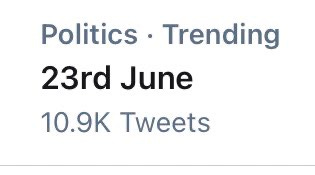Welcome to Keeping the Receipts— a newsletter from the Citizens, written by Carole Cadwalladr You can read about the mission behind this here.
If you like what you see, consider forwarding it to a friend or two. You can also click the button below to subscribe. And if you’ve been reading, consider going to the paid version.
A conundrum: should I kick off with the dangerous and secretive data grab that the government is planning for your private health records? Or with the dangerous and secretive refusal of the government to hand over the data on the spread of the new variant in schools?
One week, two stories. Though, in fact, they’re two sides of the exact same story: a black hole of transparency and accountability with hazardous, unknown and potentially deadly consequences.
Because we’re at another critical moment in the pandemic. And decisions being taken today will entail people dying of COVID-19 tomorrow. The government is plunging on toward 21 June “Freedom Day”. And it has become increasingly and uncomfortably apparent that the new variant is out of control across England and we are sleep-walking into another national disaster.
One aspect of living through a pandemic is that I know a lot more scientists now and this is what was in my WhatsApp group chat yesterday morning.
The news is not good. The number of cases in England grew by 46 per cent last week. The new variant is dominant. There is worrying news about vaccine efficacy. And on the biggest reservoir of unvaccinated people in the country – schools – there is zero information.
Why? We simply don’t know. Schools are the engine of transmission. In airless classrooms and corridors, crowds of the unmasked and unvaccinated breathe the same air. The risks of this – to them, to their parents, to the wider community, to the entire country – are literally unknown because Public Health England is still refusing to publish the data on the spread of the variant in schools.
When I reported this story two weeks ago for the Observer, I was genuinely shocked by the evidence I saw. Evidence that showed the Prime Minister’s office was directly interfering with the work of Public Health England. That it had intervened to stop the publishing of data from a report released on May 13. Data which has been missing from every report that PHE has published since.
It’s so fundamentally and profoundly wrong. The agency set up to protect our public health must be free to make decisions based on the best interests of our public health. And yet it’s not.
As we explained in last week’s newsletter, that’s why, with help from data rights agency AWO, we sent a legal letter. Because everything else had failed. All we want is for PHE to do the job that it is meant to do free from political interference – or “unlawfully surrendering independent judgement” to the Prime Minister’s office. As reported here in the BMJ:

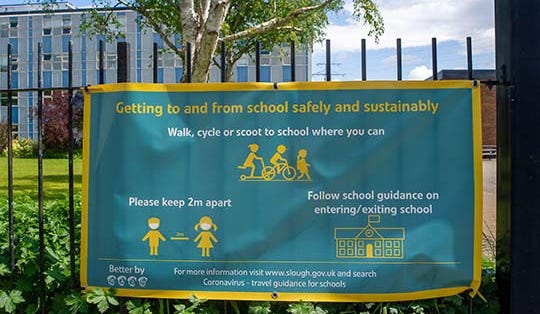
This week PHE released information showing the new variant growing most quickly among 10-19-year-olds and a shocking number of outbreaks in educational settings, but it’s still refusing our demand to release the actual data. Instead it responded by asking for more time.
Deepti Gurdasani, a senior lecturer in machine learning at Queen Mary University who we’ve been working with on this and who is our spokesperson on the subject, finds it incomprehensible that we still don’t have it.

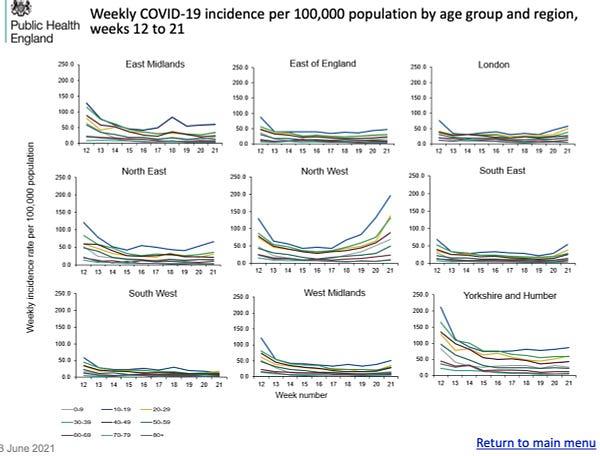
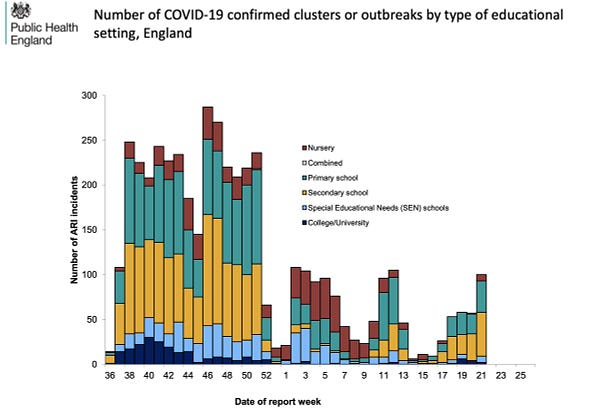
Even more troublingly, Public Health England published a blogpost minimising the risks to children which literally contradicts its own reported figures.




On Friday Switzerland’s leading French-language newspaper, Le Temps, reported on the potentially “deadly consequences” of the UK government’s secrecy after a Swiss data rights NGO, PersonalData.IO, wrote to PHE to throw its support behind The Citizens’ claim. This secrecy isn’t just a risk to us but to the rest of the world.
During a Twitter Spaces event we held this week, I asked the founder of PersonalData.IO, Paul-Olivier Dehaye, if it reminded him of the secrecy of the Chinese government at the start of the pandemic. The parallel, he said, was “obvious” and for him it underlined why citizen-led efforts are so vital: because at moments like this, it’s all we’ve got. (Daniella Modos was also at the Twitter Space and explained why she – a lone parent on Twitter – had decided to gather open-source evidence on outbreaks in schools, saying that in the absence of official data it seemed the only solution.)
Spot the connection
There’s a hidden theme in the above. The Citizens, AWO and PersonalData.IO all emerged from the wreckage of the Cambridge Analytica scandal. Ravi Naik of AWO represented Professor David Carroll, the American academic who attempted to use our GDPR laws to get his data from the firm. Paul-Olivier Dehaye of PersonalData.IO was a professor of maths at Geneva University when he began worrying there was something very wrong about what Cambridge Analytica was doing and began investigating.
His early work was the foundation for some of the first journalistic work on the story, including mine.
And The Citizens is a direct response to four years of frustration about a total lack of accountability and to what we need to do to hold power to account.
I mention this because once you’ve seen how personal data can be abused and weaponised and used against a population without its consent, it’s hard to un-see it.
It’s not a coincidence that Ravi, Paul and I joined forces on this issue. At every point in this pandemic, a lack of data transparency has proved deadly.
And it’s also why the government’s plans for our NHS data, conducted under the cloak of darkness that this pandemic affords, are so profoundly troubling.
Cambridge Analytica, only worse
You may have spotted this trending on Twitter yesterday.
The fact of it trending is very good news. It’s excellent that “23rd June” has entered (a small sliver of) public consciousness, but also profoundly alarming. Because 23 June is the date by which you must sign a bit of paper and give it to your GP surgery or your entire GP medical records will be harvested by the government into a central database accessible to third parties including commercial companies.
The most extraordinary thing about this is that no one knew anything about it until two weeks ago. That was when the Register reported that the plan had been announced on an obscure blog on a government website. A plan to harvest the GP records of 55 million people unless they explicitly opted out.
Most people still know nothing about this. And most people, therefore, will not have been given the chance to opt out. And most people’s data, therefore, will be taken without their consent and be used for… well what? It’s entirely unclear. But here’s what we do know. It’s not lawful – a Data Protection Impact Assessment, a minimum requirement under GDPR – hasn’t even been carried out. And it can’t be undone. Once your data’s gone, it’s gone.
But here’s what we do know. That data set, a complete medical record, cradle to grave, of an entire nation is one of the most valuable on earth. And the government admits it can be accessed by third parties, including commercial companies. To explain why this matters, a brief detour back to 2013 when I went to a genetics symposium in California. This, years before I started investigating Cambridge Analytica, was my data wake-up moment. Because I’d freely given up my most personal, intimate data – I’d had my whole genome sequenced – and I was suddenly forced to think about what that meant.
The American genome-sequencing company that organised the symposium, Illumina, now employs David Cameron as a UK lobbyist. In 2014 it won a £78 million deal with Genomics England which, funnily enough, was overseen by then Prime Minister David Cameron. And in 2019 it landed another contract with Genomics England for £123 million without any competition. (You’ll recognise the name of the head of Genomics England who oversaw that incidentally – it’s one Dido Harding.)
The point of this story is that in a room full of medical professionals, data scientists and genomics marketeers, I had one clear takeaway: that the NHS data set, talked about in tones of awe and amazement, was the golden goose. Nothing like it exists in America. There are no centralised records and there never will be. But an entire nation’s data set, from the cradle to the grave, digitised and machine readable and blendable with commercial data and mined by AI… well, I realised the potential of a “Cambridge Analytica”, an intrusive, hyper-personalised, data-led technology, years before I found myself investigating the actual Cambridge Analytica.
On Friday the Citizens joined a coalition of organisations organised by tech rights advocates, Foxglove, to challenge the decision in the courts. To understand why it matters and what’s at stake, we interviewed Dr Rachel Clark. A palliative care consultant who’s been such a powerful moral voice throughout this pandemic, she says the whole idea of it rang an immediate alarm bell for her.
On Friday the BMA and Royal College of GPs raised their concerns. But that doesn’t mean it’s not going to happen. And we only have three weeks to stop it. We have to be prepared to injunct. And that costs money, so if you can afford a few pounds to support this crowdfunder, we’d be very grateful.
It’s Matt Hancock who will make the ultimate decision on this. The same Matt Hancock who is pouring money into “data-driven initiatives” and who told the Commons that its plans for genomic medicine “will transform the UK into a life sciences superpower”.
Data is at the heart of all these plans. Your data. Take nothing for granted.
Talking of which…
Prepare for incoming. Not content with trying to “reform” judicial review, the principal legal mechanism we have for challenging the government in court, it seems like crowdfunding legal cases may be next for the chop:

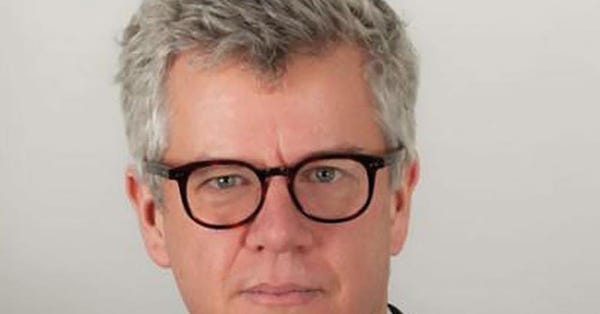
As Jolyon Maugham says:
“The way Government is briefing makes this look like a very specific legislative attack on @GoodLawProject and the work that we do.”
Solidarity with Good Law Project and the essential work they’ve done especially on the scandal of the PPE contracts. And to all our friends, the “activist lawyers”.
Finally…
The Electoral Commission published the latest donations to political parties. AND GUESS WHAT? The latest from our receipt keepers:

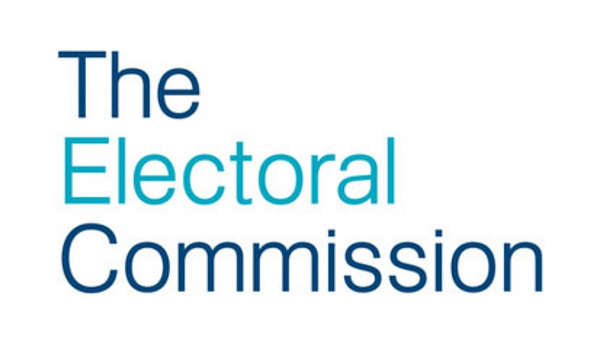
To help us do this work, all we ask is that, if you can afford to, please consider subscribing. We’re fortunate enough to have received grants from Luminate and the Ford Foundation, who are supporting us in our mission to find new ways of holding power to account. But we have so much to do and urgently need your help.
Or failing that, please:
Thank you, Carole
PS This week’s Independent SAGE was truly superb. If you want to understand what’s going on and why the evidence of the spread of the new variant is so worrying, I urge you to watch Professor Christina Pagel’s hugely detailed breakdown of the data at the start. And then what Professor Deenan Pillay has to say after it. Independent SAGE has issued an emergency statement about 21 June because, as he explains, the data demands it.





